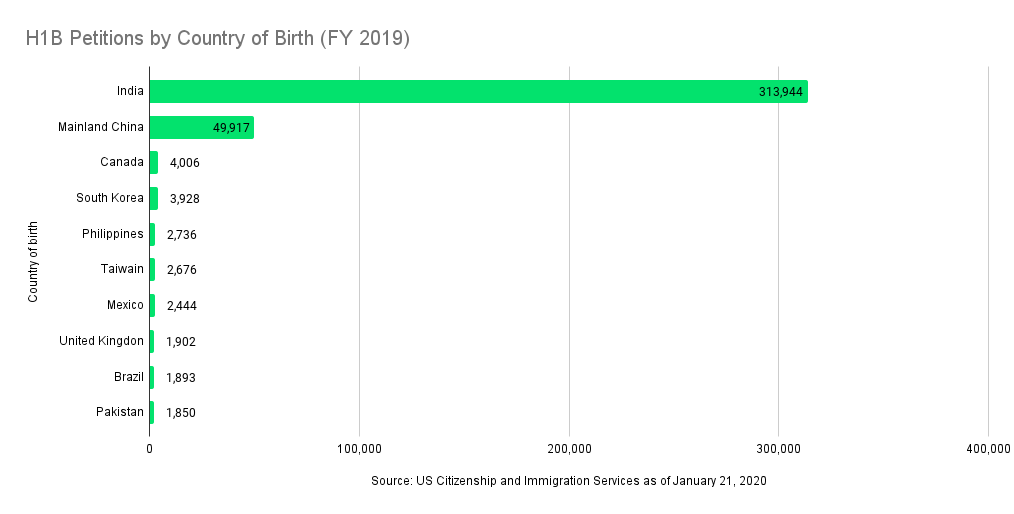How Immigration Boosts Entrepreneurship And Lessens Workforce Constraints
Zikaria Syed grew up in Pakistan and received a Masters in Computer Science from Drexel University in Philadelphia. He spent the late 1990s developing software at Microsoft before co-founding a number of healthcare technology start-ups over the past 15 years. His current business is PatientWing, which connects patients to clinical trials.
Today, Syed represents the ideal of American identity—and what an innovative ecosystem should be. The world's best and brightest come to our universities for their reputation and dedication, where they help commercialize cutting-edge research and ideas in our large and stable global marketplace. This career intersects with the largest corporations in the world and new bets for a bright future. Immigration encourages entrepreneurship and strengthens our workforce.
"As an immigrant, you're used to uncertainty," Syed told Technical.ly as part of our "Thriving" series on immigrant entrepreneurs. "Not everyone has the courage to jump into a new situation without knowing what it's like."
Like most rich countries, America's population is aging. It affects both employers and employees. Increasing a country's median age by 3.5 years lowers the entrepreneurship rate by 2.5%, according to an influential study by James Liang—a major threat when the global entrepreneurship rate was no more than 6.1% in 2010.
Today, our number of retiring boomers far outnumbers our growing number of Zoomers. This is a structural deficiency of workers.
With the United States remaining the world's top travel destination, immigration could help solve the problem — at least temporarily, as birth rates continue to decline worldwide.
In 2020, American immigrants are almost twice as likely to start a business as the native-born, and according to last year's MIT study, immigrants are 80% more likely than the native-born to start a business. - The union. They are also expanding this business. According to a 2020 article, immigrant-founded companies create 42% more US jobs than native-founded companies.
Take a few points for context:
- Between 1990 and 2005, immigrants accounted for a quarter of all venture-backed public companies in the United States.
- According to a 2018 analysis, more than half of America's $1 billion "unicorns," or private corporations, were founded or co-founded by immigrants.
- More than a third of US-related Nobel laureates are immigrants.
The simple reason for this is pure self-selection bias. Crossing borders and seas requires great resources and effort. As such, those who do tend to either engage or flee from very difficult circumstances - often both.
However, immigration remains another major issue, steeped in partisanship over the years. On the way to change. The bipartisan immigration bill introduced last month by Congresswomen Maria Elvira Salazar and Veronica Escobar is awaiting a committee decision. The main focus is on work-related visas for citizenship, border infrastructure and agriculture. The bill represents an overdue recognition of what should be a fully bipartisan economic problem: people everywhere want to come here, and we need them.

How do we get them here? The primary tool for employers to hire foreign-born technology workers is the H1B visa. More than three-quarters of applications for the program in 2019 were submitted by Indian citizens, particularly Indian men, according to US Citizenship and Immigration Services. Other parts of the world are also contributing – albeit from a low base, the African continent is expected to be the world's largest exporter of migrant workers, including employers and technology workers.
According to Pew's analysis of data from 2010 to 2016, H1B visa holders, regardless of origin, are increasingly flocking to research centers on the East Coast and in Texas.

Whatever paths led them here, they were very important. Many of Philadelphia's top tech startups were founded by immigrants who were functional employees of other tech companies. According to an analysis of this period, between 2006 and 2012, immigrant entrepreneurs founded a quarter of all tech startups in Maryland.
Beyond these jobs and businesses, immigrants make our community more vibrant. Siedi who comes from Pakistan gave another example. One of the reasons he has stayed in Philadelphia is his love of restaurants and culture. Technical.ly interviewed Ian, Aramouni and many other expat entrepreneurs and professionals living in their adopted countries.
True American privilege thrives when we welcome people from all over the world and invite them to identify as Americans—an achievement still uncommon given the ethno-national identities of countries like China, Japan, Russia, and Russia. Italy. America's innovation-driven economy depends on their contributions, while America offers something of real value in return.
By recognizing the power of immigration and the entrepreneurial spirit it brings, the United States can position itself as a global leader in innovation and prosperity.
Sign up for free today and stay up to date with the news and advice you need to advance your career and connect with our vibrant tech community.
From a media point of view



0 Comments:
Post a Comment
Subscribe to Post Comments [Atom]
<< Home